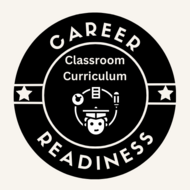
(View Complete Item Description)
This course will focus on the intersection of STEM subjects and global competence and will feature a variety of resources, reflection activities, and testimonials from teachers across the United States. Global competence and global collaboration are essential to progress in the overlapping fields of science, technology, engineering, and mathematics (STEM). The interconnectedness of our world and the rise of new technologies demand that students be prepared to work across borders. To prepare for the jobs of tomorrow, students will need a set of specific skills that will enable them to fully participate, problem solve, and adapt in our changing world. The ability to engage with multiple perspectives in the pursuit of knowledge will be key to their success. Global competence in STEM requires today’s students to recognize their responsibilities to both the local and global communities and to develop and apply knowledge in culturally appropriate, relevant, and sustainable ways.
Material Type:
Full Course
Author:
U.S. Department of State's Bureau of Educational and Cultural Affairs



















